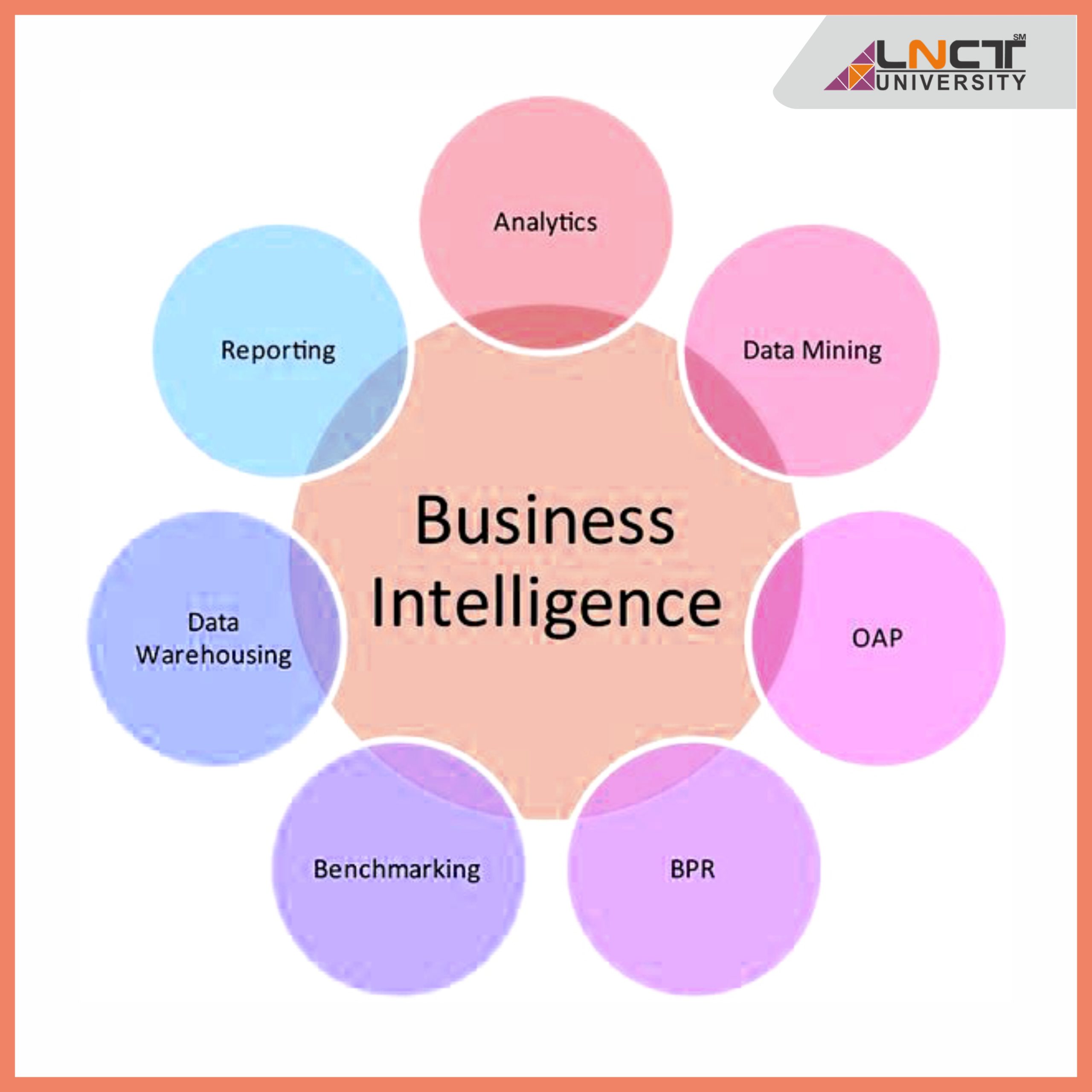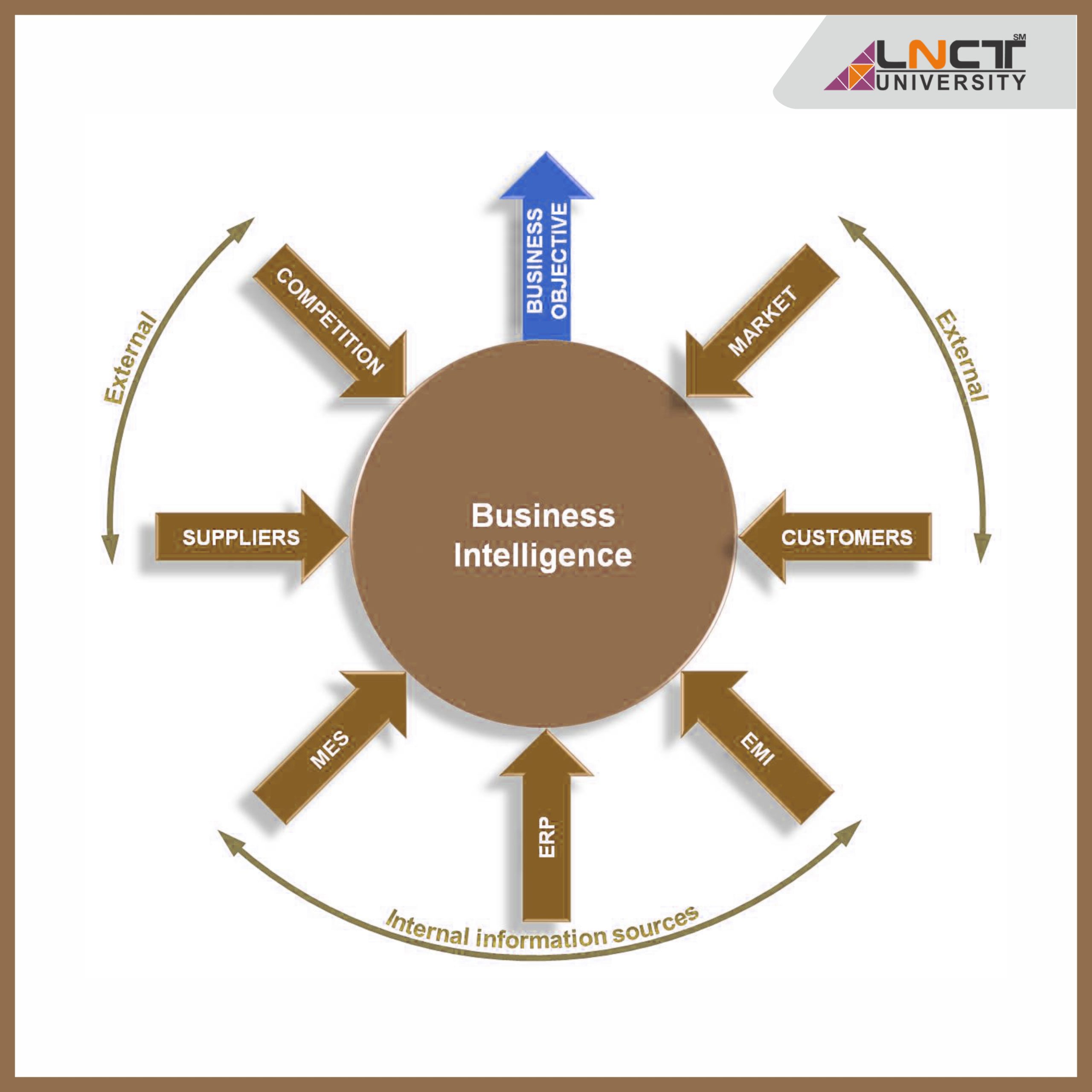Business Intelligence and its Career Growth in near future (2025)
What is Business Intelligence?
Business intelligence is the process of collecting, organizing, and analyzing data to make informed business decisions. It can be used to improve a company’s efficiency by making better use of its resources and personnel.
Business intelligence can be used in a variety of ways. Companies use it to identify trends, analyze customer behavior and develop new products among other things. It’s also often used by managers who want an overview of the entire company to make decisions about its future.
In this article, we outline how business intelligence works, what jobs are available, and provide tips for those looking to break into the industry.
Business Intelligence Engineer
A business intelligence engineer is responsible for designing and running data analytics, reporting, and visualization programs within an organization.
The job is a mix of both quantitative skills such as mastering programming languages like SQL or Tableau along with qualitative skills in understanding the problems that organizations face. The top priority of this role is to analyze data sets from diverse sources and then present the findings to senior executives via a variety of charts, graphs, and other visualizations.
Business Intelligence: Way of working
Business Intelligence works by analyzing and working with data to identify patterns, trends, risks, opportunities, and other factors that can help an organization make better decisions. Typically, this information is analyzed on a company-wide basis, but it could also be on the level of individual departments or even specific projects as well.
Benefits of becoming a Business Intelligence Engineer:
The benefits of becoming a business intelligence engineer are plentiful. Some key benefits include flexibility in work hours due to being self-employed, having no boss telling you what to do all day long (which seems like heaven after sitting at your desk job), the ability to choose when and where you want your office space – so if you prefer coffee shops over cubicles then this is perfect for you!
Various Types:
- Traditional business intelligence is focused more on providing insight into past events rather than trying to predict what might happen next
- Predictive analytics tries to predict important variables that will affect the outcome of some event or issue at hand while using data from both past and present contexts for analysis purposes
There are many levels at which you could pursue business intelligence as a career path. The most popular levels would include; entry-level positions such as BI analyst, BI programmer, information architect, and BI designer.
Other levels would be more senior positions such as business intelligence analyst manager or data scientist.
The most common entry-level jobs for business intelligence are an Information Architect, Business Intelligence Analyst Manager, and Data Scientist. These positions require that you have a bachelor’s degree in computer science, engineering, mathematics, or statistics from an accredited university with prerequisite knowledge of SQL (which is the primary programming language used by these types of professionals) which requires about one year of education to master).
This should also include courses on how to use Oracle BI EE 11g R12 products because this will allow the candidate has experience in designing solutions specific to their company’s needs when they start working there. It is important to differentiate between the three types of positions because there are many similarities but also differences in what they do.
An information architect is responsible for designing and documenting data structures, defining metadata standards, maintaining a company’s database schemas as well as developing interfaces to define how users will work with data. -A business intelligence analyst may be responsible for identifying ways to improve enterprise performance by looking at different reports generated from various sources that provide insight into KPIs or metrics such as customer spending habits or product popularity which can help identify trends over time so that opportunities can be explored.
This role usually requires an MBA degree in addition to knowledge of Excel functions, SQL programming language among other tools like Tableau Software (which helps analysts explore their dataset). The job also requires an understanding of various customer segments and demographic groups.
A business intelligence analyst may be responsible for identifying ways to improve enterprise performance by looking at different reports generated from various sources that provide insight into KPIs or metrics such as customer spending habits or product popularity which can help identify trends over time so that opportunities can be explored.
This role usually requires an MBA degree in addition to knowledge of Excel functions, SQL programming language among other tools like Tableau Software (which helps analysts explore their dataset). The job also requires an understanding of various customer segments and demographic groups.
Routine Tasks for Business Analytics
-Business Intelligence Analyst needs to understand the company’s IT systems and procedures
-Analyze data, identify trends in company operations or customer behavior, and recommend changes to improve performance.
-Monitor KPIs for the organization’s product lines, developing metrics that reflect operational goals of the business.
The analyst needs to understand the company’s IT systems and procedures. Analyzes data identifies trends in company operations or customer behavior at a firm to suggest improvements on how things are being run by looking at different reports generated from various sources which provide insight into KPIs or metrics such as customer spending habits or product popularity which can help identify trends over time so that opportunities can be explored. The role usually requires an MBA or an advanced degree in mathematics, computer science, or statistics.
-The business intelligence analyst develops metrics and reports that are then used by the company to identify areas of improvement. They provide recommendations for changes to improve performance based on trending data over time with a focus on operations.
-A typical day at work may include researching trends within the company’s customer base or their product lines, analyzing various sources of information such as sales figures from different vendors, and maintaining spreadsheets where they record pertinent observations about each area.
A BI Analyst must be detail-oriented and have strong analytical skills. The ability to express complex ideas is also important because one needs to translate those concepts into language understandable by others so that appropriate decisions can be made regarding adjustments or changes in the company’s business practices or marketing strategy.
-A BI Analyst is responsible for ensuring that any problems with their work will be noticed by top management, as well as other people who are within their department. They must also ensure that all of the projects or tasks they take on will satisfy strict deadlines without jeopardizing quality and customer service standards. The ability to multitask while juggling multiple responsibilities at once is essential because a BI analyst may need to provide data analysis for several different groups simultaneously if necessary.
-BI professionals normally need a bachelor’s degree or higher, with the majority holding an MBA. Alternatively, they can be professionally qualified by having undergone training from companies such as IBM Global Services e.g.; Hadoop administration certification, etc., however, it is not necessary for them to have this qualification if they already possess appropriate skills and experience. Depending on their previous qualifications, the BI analyst may also take part in courses that cover subjects related to business intelligence (e.g.; advanced reporting).
The person who understands how people use technology will make more money than someone who doesn’t understand that world at all.
Domain Expertise: Big data analytics and business intelligence technology like Hadoop. This is my area of expertise as I am a software engineer for the Watson division at IBM. We use some cool technologies to analyze large sets of information such as machine learning algorithms that allow us to make predictions about what might happen in an industry based on patterns found in historical data, or predictive analytics engines that give insight into how people are using products so we can understand if there’s any way we could improve them – which sounds pretty interesting!
Essential take away for success
Skills are not enough for this job application as you will need industry knowledge, diverse skills, and a focused career objective.
It requires you to be familiar with tools such as SQL and Tableau, Excel, or other data visualization skills that are used for extracting insights from large datasets. Other requirements include IT proficiency in network security, system administration, and cybersecurity along with strong written communication and presentation skills since business intelligence engineers often present their findings to senior executives.
Skills looking for…..
A business intelligence engineer needs strong IT proficiency in network security, system administration, and cybersecurity along with strong written communication and presentation skills since they often present their findings to senior executives. They also have experience working with data sets, programming languages, and relational databases. You also need strong analytical skills to extract insights from large datasets.
What are the requirements?
Business intelligence engineers have experience working with data sets, programming languages, and relational databases as well as analytical skills that are used for extracting insights from large datasets. Other requirements include IT proficiency in network security, system administration, and cybersecurity along with strong written communication and presentation skills since business intelligence engineers often present their findings to senior executives.
How long does it take?
In general, it takes about three years of education or training followed by an on-the-job apprenticeship before you can become a business intelligence engineer. You could shorten this time frame if you already had some knowledge of these topics through work experience or self-study but that rate valuable insights.
How to become a business intelligence engineer?
The first step to becoming a business intelligence engineer is gaining experience in IT and data analysis skills. This can be done by taking courses in network security, system administration, or cybersecurity as well as programming languages such as Tableau along with qualitative skills in understanding the problems that organizations face. The top priority of this role is to analyze data sets from diverse sources to comprehend the issues faced by an organization and then generate insights or recommend solutions.
A business intelligence engineer will need a combination of IT engineering skills such as programming languages, relational databases, and network security along with strong written communication and presentation skills since they often present their findings to senior executives. They also have experience working with data sets, analytics, and statistics.
Steps to become a business intelligence engineer:
Education – A formal education in cyber-security, system administration, or cybersecurity as well as programming languages such as Tableau along with qualitative skills in understanding the problems that organizations face.
Skills – The top priority of this role is to analyze data sets from multiple sources and provide a detailed analysis of the data.
Career path – If you are someone who wants to work in IT infrastructure, then this is a great way to start your career as it will help with time management skills for example. You will also be able to use tools such as Tableau or Excel which can lead on into other roles in business intelligence within an organization.
Salary – The average salary of a Business Intelligence Engineer ranges from $80,000-$120,000 per year depending on their experience level and location so earning enough money isn’t going to be hard at all!
Growth of business intelligence in the future – The future is looking bright for those who are interested in a career as an analyst. It’s predicted that there will be a high demand for Business Intelligence Engineers so it’ll never get boring!
The top priority of this role is to analyze data sets from multiple sources and provide a detailed analysis of the data.
If you want to work in IT infrastructure, then this would be a great way to start your career because it helps with time management skills such as scheduling tasks accurately or setting up simple structures like databases. You can also use tools such as Tableau or Excel which could lead on into other roles within business intelligence within organizations if you have enough experience working with these tools.
As the average salary ranges from $80,000 to $124,000 a year, it’s worth considering.
Knowledge in SQL and SAS is necessary for this role.
You need an undergraduate degree with at least 18 credit hours of mathematics courses as well as computer science classes such as data structures or algorithms coursework.
It also helps if you have programming experience in languages like C++, Java, or Python too because the Business Intelligence Engineer will be manipulating data sets by writing scripts to create interactive visualizations that can help management make key decisions based on information they’ve gathered from these analyses.
Knowledge in mathematics is necessary as well as computer science classes such as data structures or algorithms coursework at the university level because they will manipulate data sets by writing scripts to create interactive visualizations that can help management make key decisions based on information gathered through these analyses. This skill becomes especially important when using predictive analytics models since business intelligence engineers need knowledge of predictive models and how to create them.
They will also need coding skills to manipulate data sets by writing scripts for the visualizations that can be used for key decision-making based on information gathered through these analyses. This skill becomes especially important when using predictive analytics models since business intelligence engineers will need knowledge of predictive modeling and how to create one themselves from scratch or use a third-party model already made available online.
We recommend taking courses in computer science, mathematics, statistics, machine learning (specialized degree programs), as well as considering internships with companies who work in this field if you want to give yourself an edge before applying for jobs – both at home and abroad.
Business Systems Analyst, IT Business Intelligence Engineer, and Data Scientist Analyst.
Entry-level positions: BI analyst, Business Systems Analyst, IT business intelligence engineer
Mid-Level Positions: Senior BI Architect or Consultant, Data Science Manager
Senior Leadership Roles: CEO of a company with analytics focus; Chief Analytics Officer in the government sector.
Required qualifications to land these roles depend on the level at which you are applying for but typically include education background suited to your career path and experience in related fields such as data mining and predictive analysis. In some cases, there may be certifications required that could require additional study time. The most popular would be the Microsoft Certified Solutions Expert (MCSE) certification available through Windows Server Certificates via Exam Pass.
Experience
There’s no substitution for experience and this industry rewards those who’ve been around a while by providing them opportunities at higher levels of leadership within their organizations. One way to get that experience. A technical certification like Microsoft Certified Solutions Expert (MCSE) can open doors for new managers while also helping current employees advance in their careers.
Human capital consulting firms often take on senior BI architects and consultants, but they’re not involved with hiring decisions beyond an initial review of resumes from prospective job applicants. The Senior Leadership Roles are primarily filled by hiring from inside the organization, an internal candidate is always far cheaper than one who needs to be hired externally.
Certification
Certification for business intelligence architects and consultants has become increasingly important over recent years as employers look for assurance that their hires are qualified professionals with demonstrable skill sets. One way to get certified. You could enroll at Rochester Institute of Technology and take advantage of its undergraduate degree program in Business Intelligence Systems Management Information Technologist (BISMIT) which helps students earn certifications.
Recognition
If you want recognition in this field, then it is important to make yourself known among others who work within business intelligence. Sharing ideas, insights, and analysis on blogs can be one way to do so if you’re not sure where to start then considering starting on LinkedIn Pulse, which offers advice from professionals all over the world including those working at Microsoft.
-The nature of this job means that there will always be room for someone looking for training businesses today need people who are up to date with the latest data analytics and business intelligence.
-Data analysts can make very good money, if you’re a self-starter who enjoys solving complex problems then this is a great career for you!
Objectives
Help people know how to become a business intelligence engineer by providing them resources on what they need to get started as an analyst of their enterprise or company, training opportunities that will help them learn about new technologies including cloud computing, why it’s important for businesses today to have someone looking into identifying business trends using various metrics and Excel spreadsheets.
The focus should be on sharing insights from professionals like those at Microsoft working within the BI Systems Manager Information Technologist (BISMIT) program which helps students to figure out how to become BI Engineers.
World’s best colleges for Business intelligence engineering
Number one – MIT
Number two – Stanford University
Number three- Georgia Institute of Technology (Georgia Tech)
Others: Carnegie Mellon, Columbia University, Illinois Institute of Technology, Massachusetts Institute of Technology (MIT), Northwestern University. These are the top business intelligence engineering colleges in the world based on their rankings from U.S News and World Report’s 2018 Best Colleges list with the information provided by Education Avenue.
The best universities for BI Engineering also include Washington State University which is ranked number four out of 100 schools that offer a bachelor’s degree or certificate program in Business Intelligence/Data Analytics according to College Factual’s online research website.
Career Overview: Best Business Intelligence College in Bhopal
Becoming one is not an easy task to complete but it has many benefits for the individual involved such as higher pay than that of other IT jobs or even traditional information management positions according to PayScale. The job outlook is expected to grow by more than 18% over the next decade which would mean it is the fastest-growing occupation according to Indeed.com.
For more information about Business Intelligence Engineer and its scope & stature, you can view some videos & websites of companies like IBM or Oracle etc.
Business Intelligence pdf:




